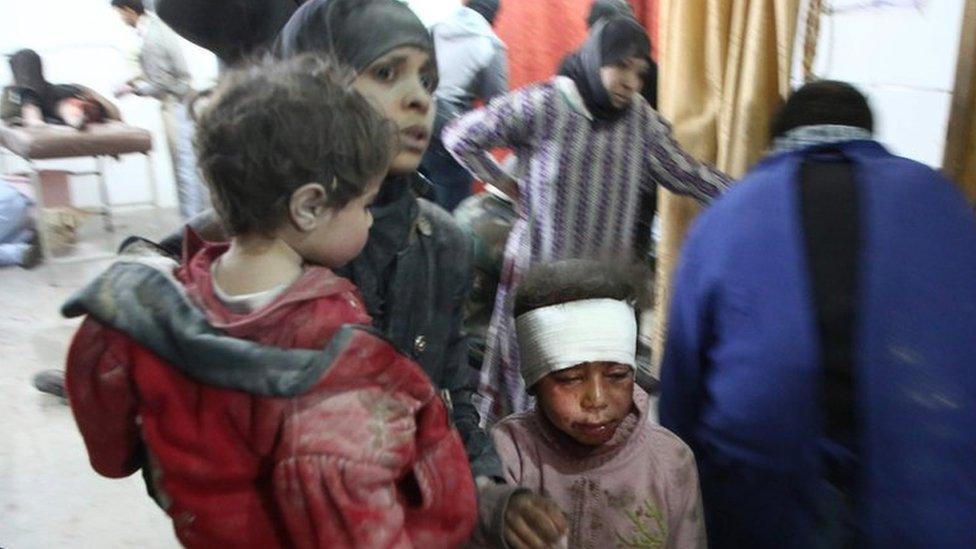Syria war: Jets strike rebel-held Eastern Ghouta as evacuation stalls
- Published
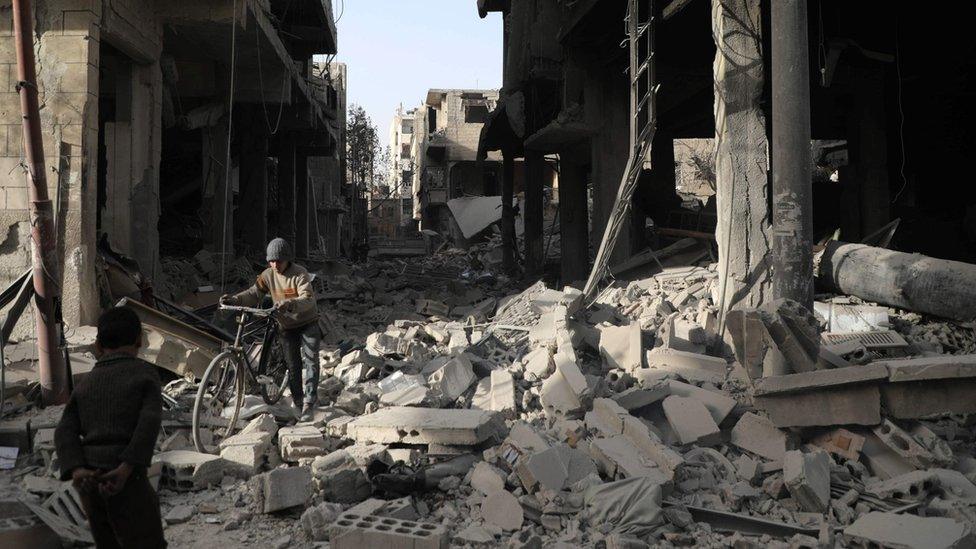
Douma has been devastated by five years of siege by Syria government forces (file image)
At least 30 people have been killed in heavy air strikes on the last rebel-held town in Syria's Eastern Ghouta region, activists and rescuers say.
Women and children were reportedly among those who died as almost two weeks of calm in Douma were shattered.
State media said the strikes were retaliation for the shelling of nearby government-held areas by rebels from Jaysh al-Islam, which controls Douma.
They also said an evacuation agreement with the group had been put on hold.
The official Sana news agency cited a military source as accusing Jaysh al-Islam of "thwarting" the deal by refusing to allow "state institutions" back into Douma and release prisoners it was holding.
However, Jaysh al-Islam political official Mohammad Alloush told al-Hadath TV that the group did not want to "close the door that can lead to sparing the blood of civilians and reaching a peaceful situation".
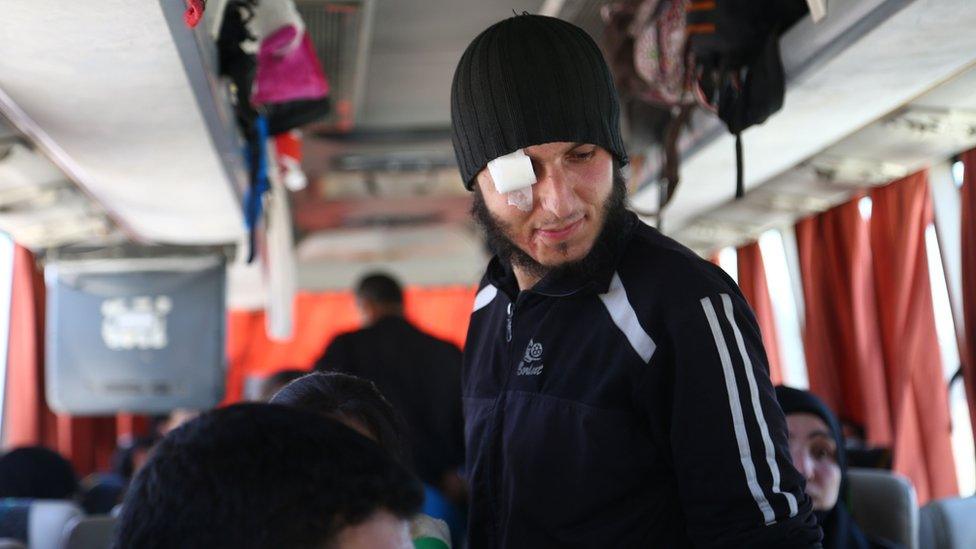
Buses have taken injured rebels and civilians from Douma to northern Syria
More than 1,600 people are reported to have been killed and thousands injured since the government and its allies launched an offensive in mid-February to retake the Eastern Ghouta, which was the last major rebel stronghold near Damascus.
Several thousand people left Douma in recent days, taken by bus to the rebel-held northern town of Jarablus, which is next to the Turkish border.
But the Syrian Observatory for Human Rights, a UK-based monitoring group, says they were wounded rebels and civilians, not active Jaysh al-Islam fighters.
The group has not yet confirmed that it is party to any deal. It has repeatedly said it is opposed to leaving Douma, and is believed to want to remain in the town as a local security force recognised by the Syrian government.
Last month two other factions - Faylaq al-Rahman and Ahrar al-Sham - agreed the evacuation of some 50,000 rebels and civilians living in Eastern Ghouta towns under their control to the mainly rebel-held northern province of Idlib.
Another 80,000 civilians have fled on foot to government-held Damascus, according to the UN. Almost half of them are staying with relatives or friends, while the others are living in makeshift shelters.

- Published2 May 2023

- Published29 March 2018
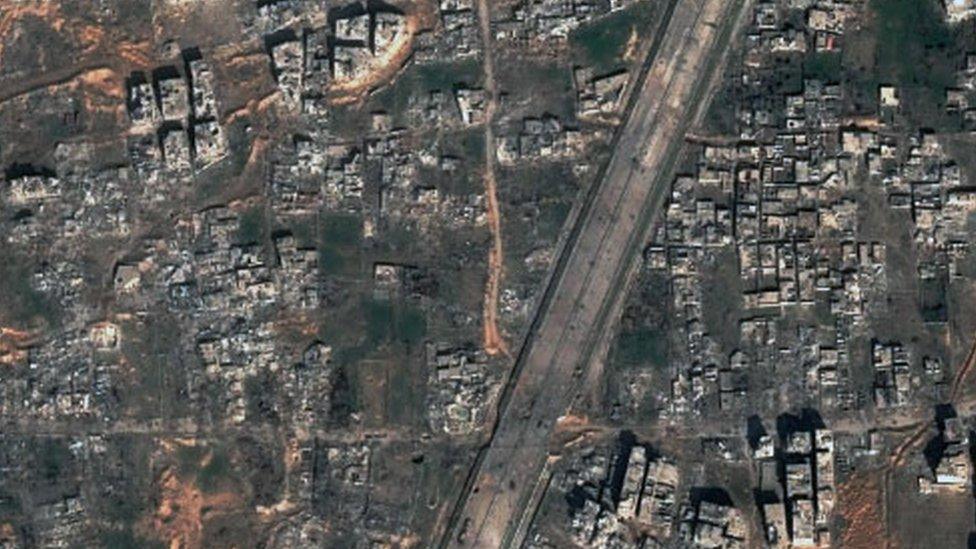
- Published28 March 2018
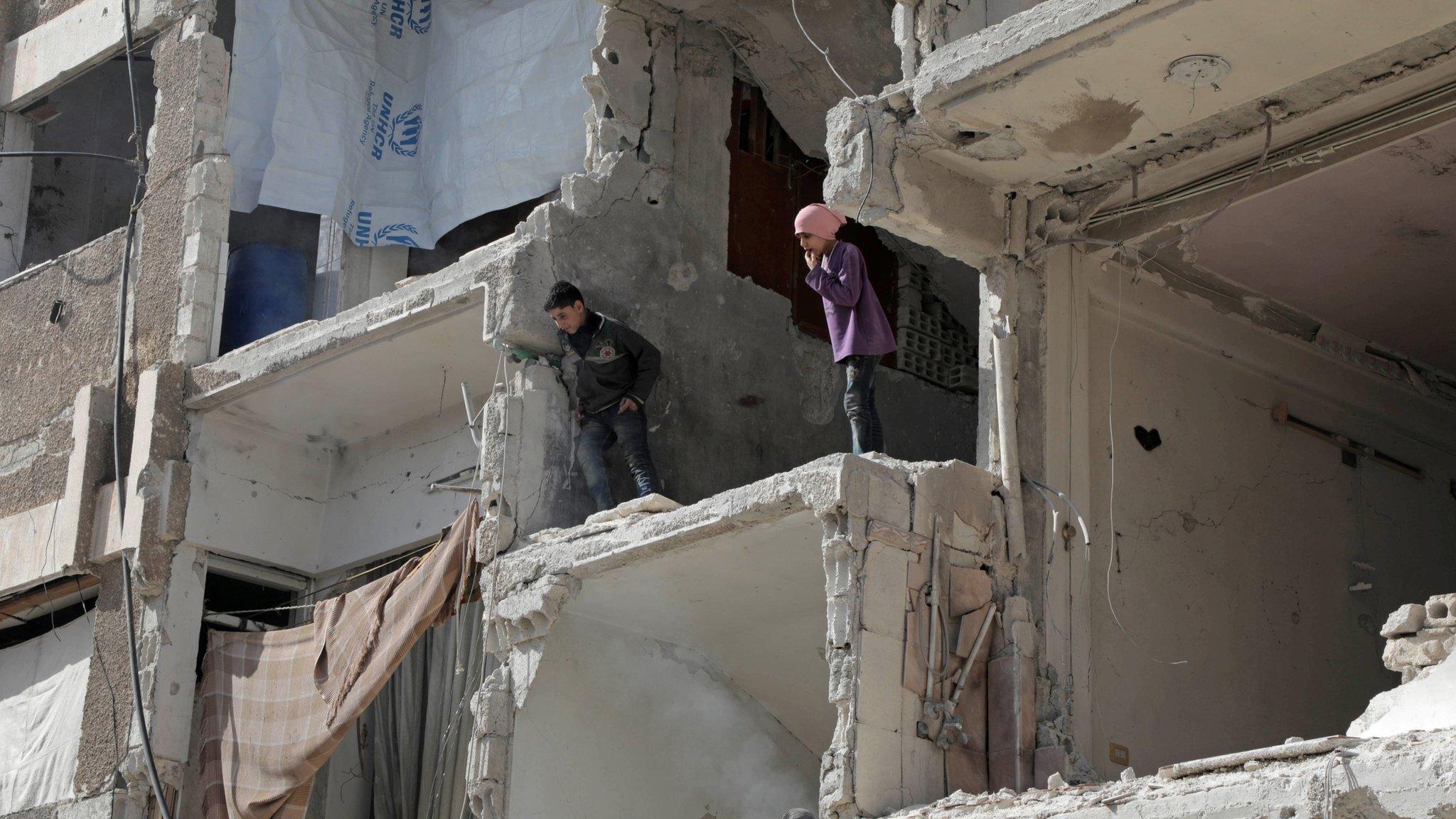
- Published28 March 2018
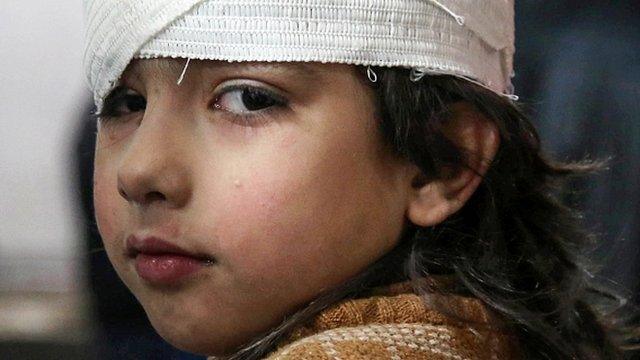
- Published23 March 2018
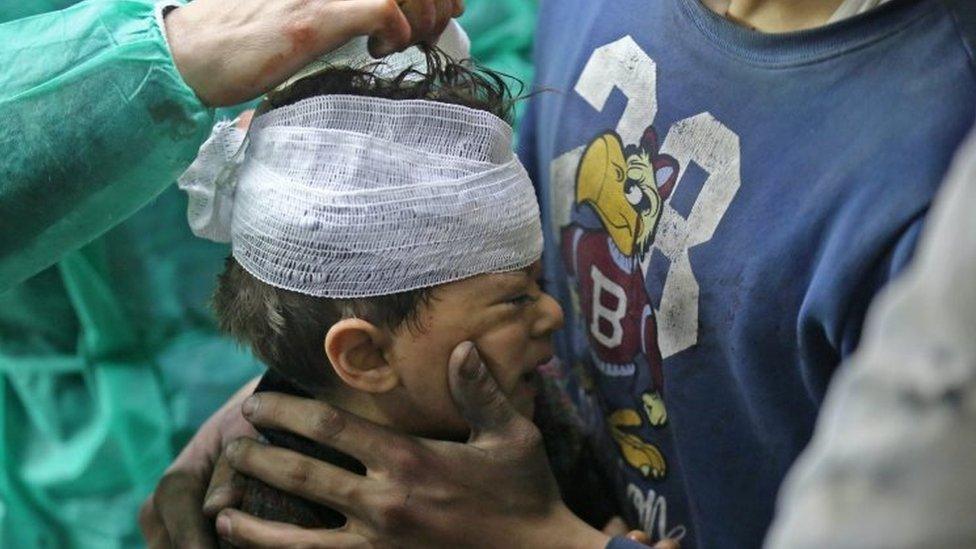
- Published22 March 2018
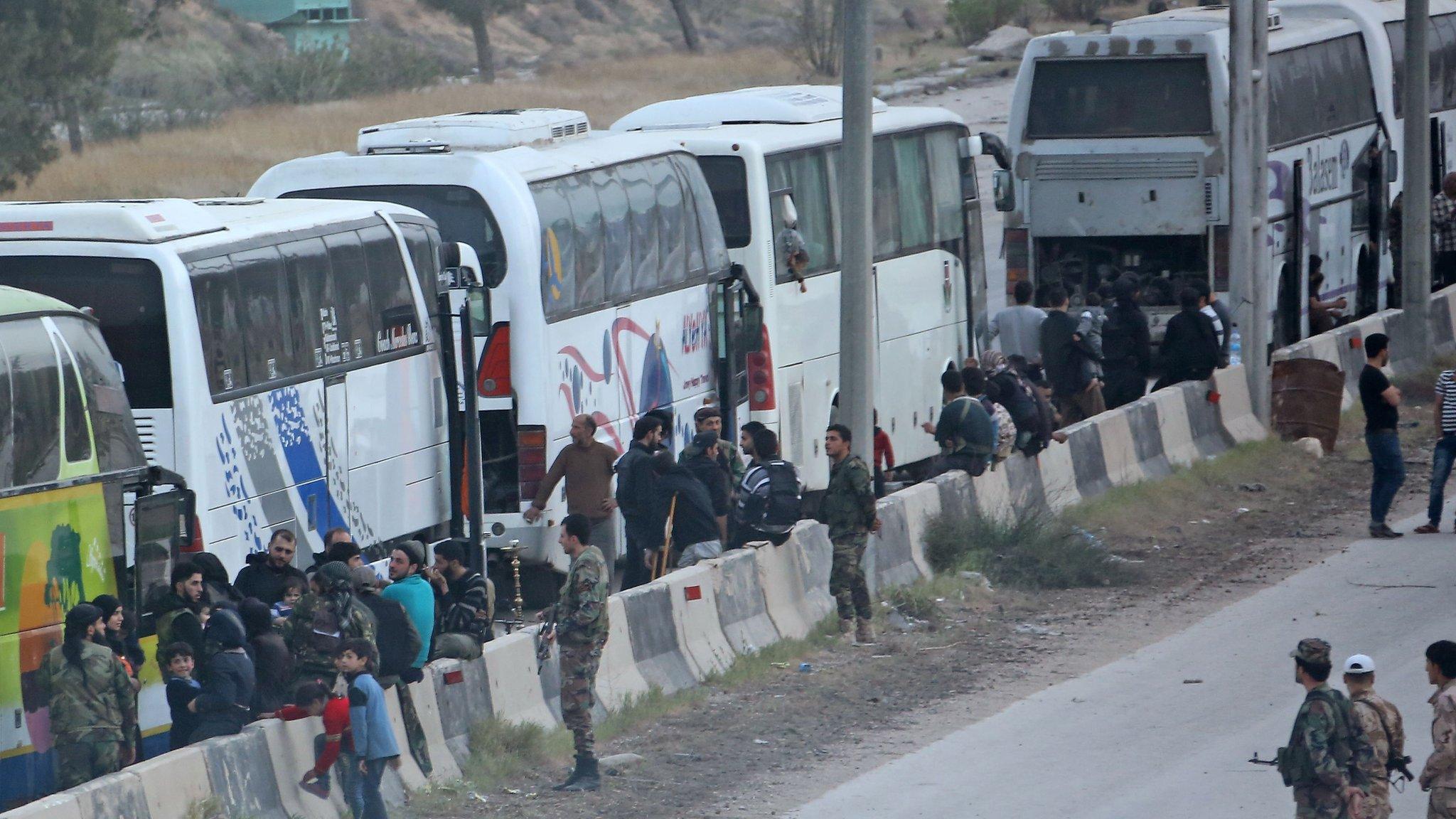
- Published17 March 2018
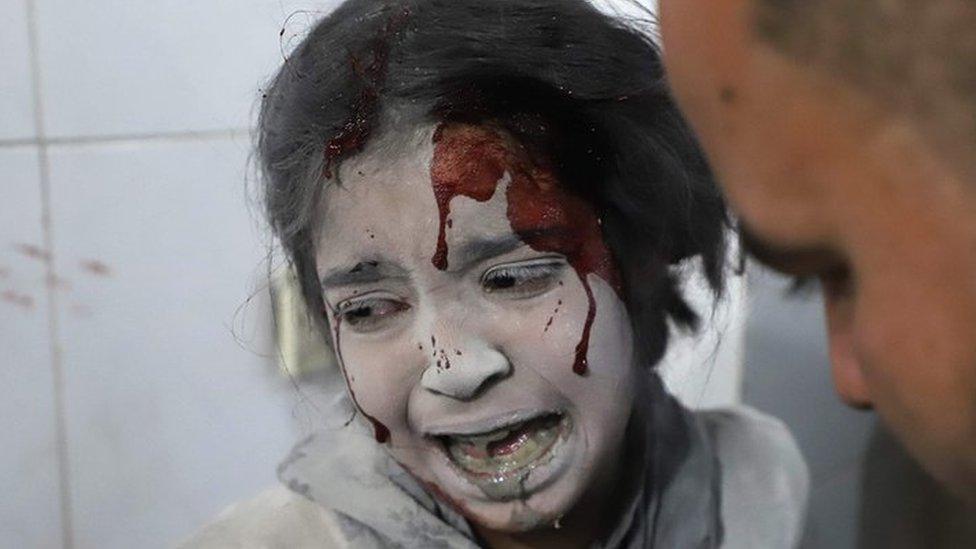
- Published16 March 2018
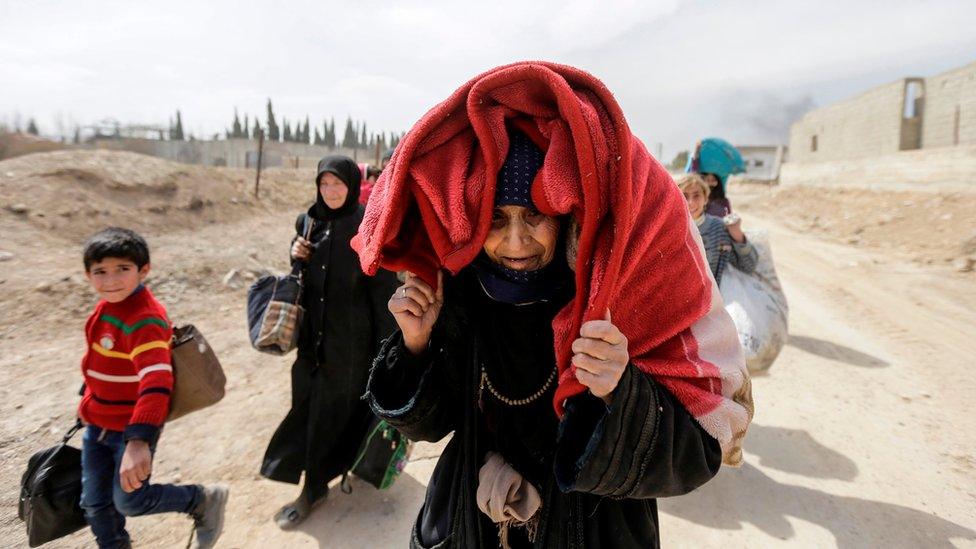
- Published15 March 2018
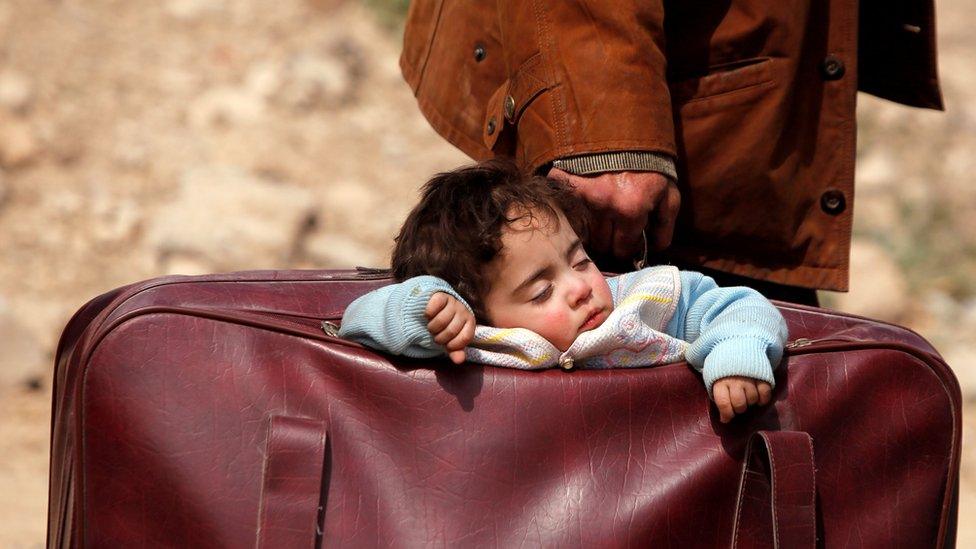
- Published22 February 2018
